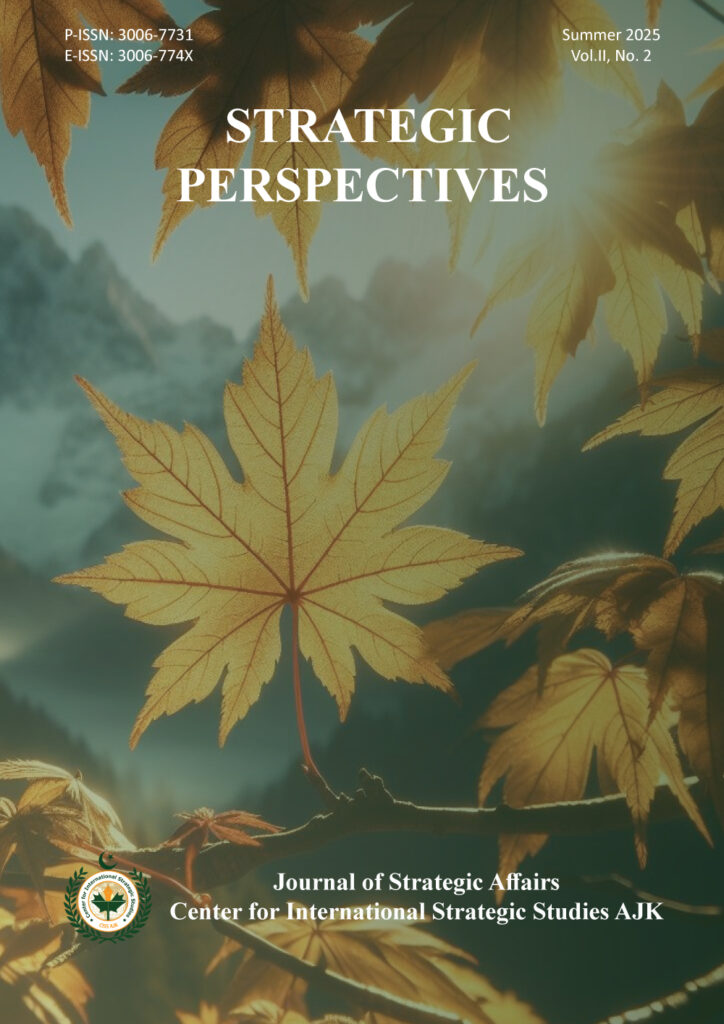Vol. II No. 2 (2025): Strategic Perspectives, Summer 2025
Arms Control Beyond New START: Challenges and Prospects in a Multipolar World
Anum Riaz and Mobeen Jafar Mir

Published June 30, 2025
Abstract
The impending expiration of New START Treaty next year on 5 February 2026, the last remaining bilateral arms control treaty, marks a watershed moment in the evolving landscape of global non-proliferation regime. The gradual collapse of global arms control treaties over the years, a process expedited by Emerging and Disruptive Technologies (EDTs), shifting global geopolitical landscape and rise of multipolarity, has brought home nuclear policymakers and experts the urgent need to revive and strengthen the faltering global arms control regime. Therefore, in the prevailing scenario of future arms control ambiguity, the steps required to forge a multilateral cooperation post New-START expiration is the main research question of the paper. Considering the ongoing geopolitical atmosphere where states are more involved in power maximization in an anarchic world than abiding by the rules of non-proliferation, the theoretical framework of offensive realism is being used to explain the phenomenon. The paper takes a brief stock of historical developments of arms control, analyzes the constraints and limitations in the New START Treaty, and its impact on strategic stability in the multilateral world. The paper proposes a future blueprint for a comprehensive new arms control framework while considering the likely future scenarios and concludes with practical policy pathways, like the need for verification regimes, incorporation and regulation of provisions for the ethical use of AI and strengthening of already established international institutions among others.
Key Words
New START, Global Non-Proliferation Regime, Disruptive Emerging Technologies, Arms Control Frameworks, Geopolitics, Strategic Stability, Multipolarity, Offensive Realism
